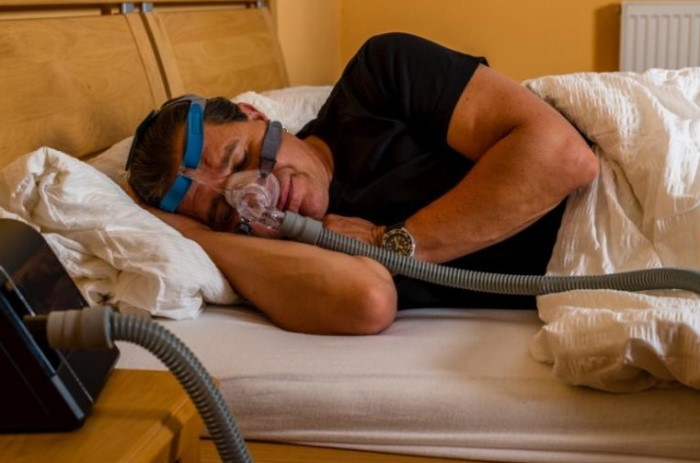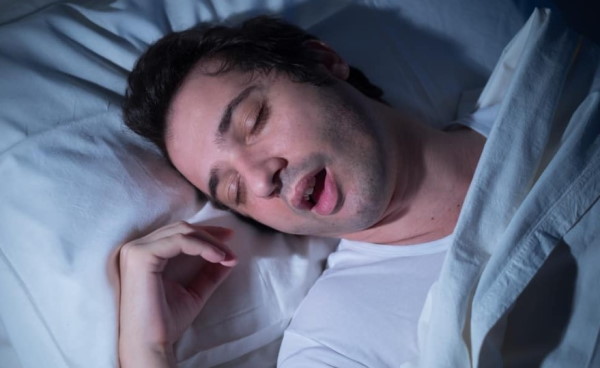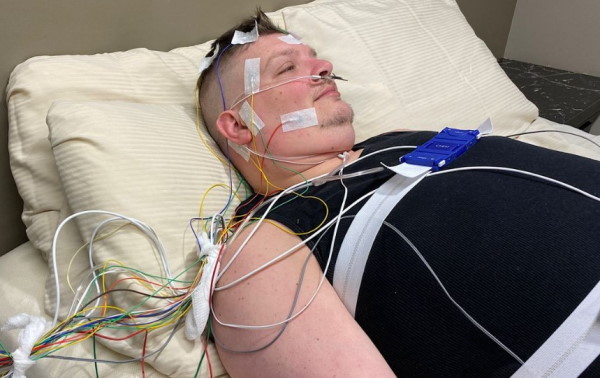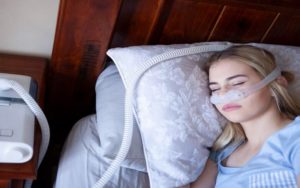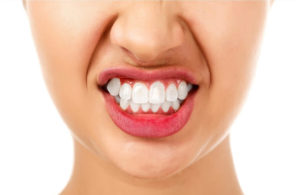People suffering from sleep apnea experience chronic fatigue and daytime drowsiness despite getting seven or more hours of sleep per night. If you have these symptoms, it’s important to see a sleep doctor to discuss your health concerns. Contrary to popular belief, there is more than one type of sleep apnea and some of them are more life-threatening than others.
This guide will specifically look into two of the most common types: central sleep apnea vs. obstructive sleep apnea. Though common, many people are undiagnosed with sleep apnea so you need to understand more about these sleep disorders to better safeguard your health.
What Do All Types of Sleep Apnea Have in Common?
If you have sleep apnea, regardless of the type, you will experience intermittent pauses of breathing during sleep. Apnea is a word that means breathing pauses. These pauses could last 10 seconds or more. The breathing pauses occur several times throughout your sleep. Some people who suffer from this condition wake up several times during the night as they have breathing problems. According to experts, someone with a severe case of sleep apnea could wake up to a hundred times every night.
The constant breathing pauses and sudden awakening can impact the quality of your sleep. As your sleep cycle is disturbed, you will experience exhaustion and drowsiness when you wake up.
About Obstructive Sleep Apnea (OSA)
Obstructive sleep apnea (OSA) is the most common type of this sleep disorder. During sleep, the muscles in your throat relax and fall back into the throat, causing obstructions while you breathe. The partial blockage of the airway can cause the individual to snore, which is why it is cited as one of the most common symptoms of obstructive sleep apnea.
Another common symptom of obstructive sleep apnea is gasping for air. When you experience breathing pauses, it sends a signal to your brain that you are lacking oxygen. Your brain stimulates your body to wake up as you gasp for air and breathe normally.
Obesity is one of the leading risk factors for obstructive sleep apnea. When you are obese, there is more excess tissue in the throat that can block the airways and make breathing difficult during sleep. Another reason why there have been more OSA diagnoses over the past two decades is the growing awareness of sleep apnea. Health advocates and doctors encourage people who suffer from chronic snoring to get evaluated for sleep apnea and to develop a treatment plan.
A sleep test is the most common method of diagnosing obstructive sleep apnea. During a sleep test, the patient’s vital signs are monitored, specifically focusing on cardiorespiratory and brain activity. Once you are diagnosed with obstructive sleep apnea, you will be asked to wear a device to keep your airway open by introducing more pressure into your lungs while you
sleep.
There are also various treatment options depending on the cause and severity of the OSA symptoms. Most people can manage this sleep disorder through lifestyle modifications, such as losing weight. However, it will work only for mild to moderate cases of sleep apnea. Patients with severe cases of sleep apnea will require a CPAP machine to regulate their breathing at night. Surgical treatment might also be recommended for those who have structural issues, such as a long and soft uvula that constricts their breathing.
What is Central Sleep Apnea?
Central sleep apnea is the next most common type of sleep disorder. It is also more challenging to diagnose and treat because the brain is involved. The sleep disorder is due to neurological factors, unlike OSA which is due to a mechanical problem in the airway.
Another reason that makes it challenging to diagnose central sleep apnea is it shares many symptoms with obstructive sleep apnea. One thing that experts have discovered is that central sleep apnea sufferers tend to have underlying health conditions, such as a brain infection, stroke, heart disease, encephalitis, or neurological diseases like Alzheimer’s Disease or Parkinson’s Disease. This sleep disorder is common among individuals with an illness affecting the lower brain stem responsible for controlling breathing. Certain drugs have also been linked to causing central sleep apnea, although more studies need to be done to confirm this.
Patients suspected of having central sleep apnea must undergo a sleep test. This procedure is done to rule out obstructive sleep apnea or other types of sleep disorders. If OSA is ruled out, your sleep doctor might refer you to a cardiologist or request a brain and heart scan to determine if the symptoms are due to some other illness.
The treatment approach for central sleep apnea is to address any underlying conditions. For example, if you have any heart issues, treating this condition could improve the symptoms of central sleep apnea. Your doctor might also recommend you stop the intake of certain medications that are linked to the symptoms. Other complementary treatments include the use of PAP therapy to promote positive airway pressure during sleep and stop snoring.
Key Takeaways
Whether you have central sleep apnea or obstructive sleep apnea, you must get the condition diagnosed. If you exhibit any of the common symptoms of these sleep disorders, go to see your doctor right away so they can evaluate those symptoms. The sooner you can get diagnosed, the sooner you can develop a treatment plan for your sleep disorder.
The prognosis for sleep apnea is very good, whether you have central or obstructive sleep apnea. There are many treatment options available to manage the symptoms and prevent any life-threatening complications. If you have any more questions that are not answered in this guide, it’s best to visit an expert or go to a nearby sleep clinic in your area for proper assessment.
In addition to visiting your doctor for diagnosis and treatment, you should strive to maintain a healthy lifestyle to prevent sleep apnea. Maintain a moderate, healthy weight according to your body type. It is also best if you avoid alcohol and the intake of sleeping pills. And if possible, sleep on your side to prevent snoring.

